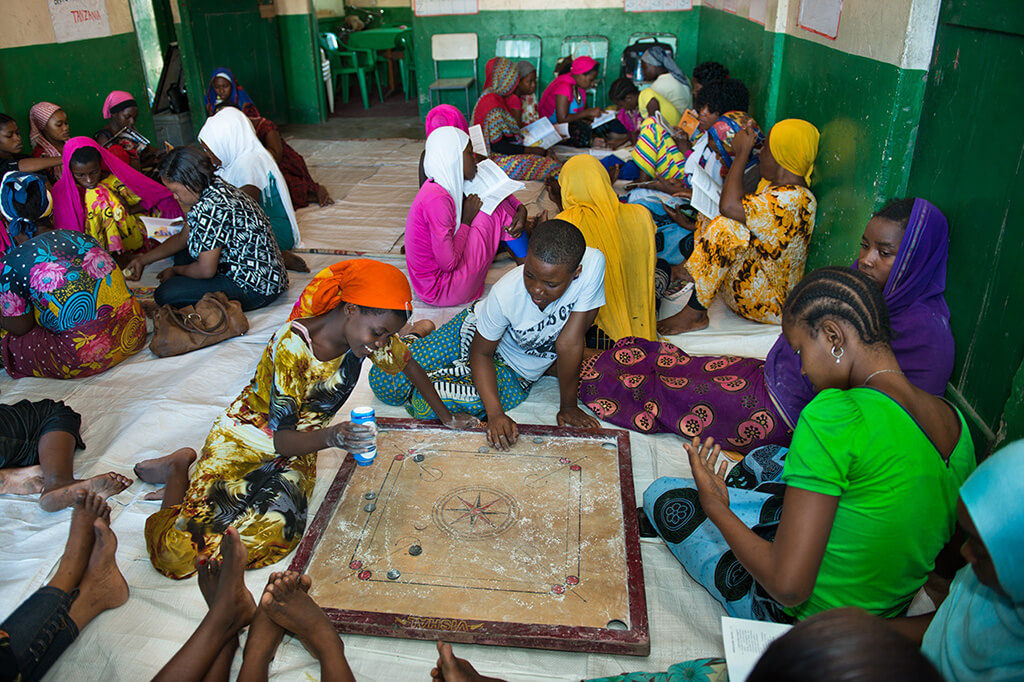Improving health for adolescent girls in Tanzania

Photo: BRAC Tanzania ELA club (Credit: BRAC Tanzania)
How goal-setting and involving adolescent boys in programming can lead to better health outcomes for young women and girls
How can we better design sexual and reproductive health programs to improve the lives of young women? With support from CEGA’s Behavioral Economics in Reproductive Health Initiative (BERI) and the World Bank’s Gender Innovation Lab, affiliated faculty Manisha Shah (UCLA), Aissatou Diallo (BRAC USA) and Jennifer Seager (George Washington University) found that encouraging young women and girls to set goals around their wellbeing and sexual and reproductive health (SRH), as well as engaging their young male partners, led to reductions in intimate partner violence two year laters.
Improving SRH programming and outcomes for youth could have particularly meaningful impacts in Tanzania, where one in three adolescents aged 15-24 will experience intimate partner violence and only 10 percent of adolescents aged 15-19 use any modern contraceptive method. In partnership with BRAC Tanzania and Grassroot Soccer, researchers tested three different low-cost, scalable interventions, with the goal of reducing rates of unintended pregnancies, STI and HIV infection, and intimate partner violence among young women and girls. The researchers worked with BRAC’s Empowerment and Livelihood for Adolescents (ELA) program which provides afterschool clubs for adolescent girls to socialize and learn life skills. In addition to offering their typical programming, participating ELA clubs provided free contraceptives and some clubs embedded a goal-setting exercise focused on wellbeing and SRH decisions for girls. Researchers also invited the boyfriends of young women participating in ELA clubs to partake in an afterschool soccer program with an educational component on SRH, intimate partner violence, and wellbeing.
Two years later, the research team found significantly lower reports of intimate partner violence from the young women whose male partners engaged in the soccer-based health intervention as well as the young women who participated in the goal-setting exercise. Motivated by these study findings, BRAC Tanzania has made engaging boys and young men more of a priority in its programming and is exploring the possibility of a new, related project in Uganda.



